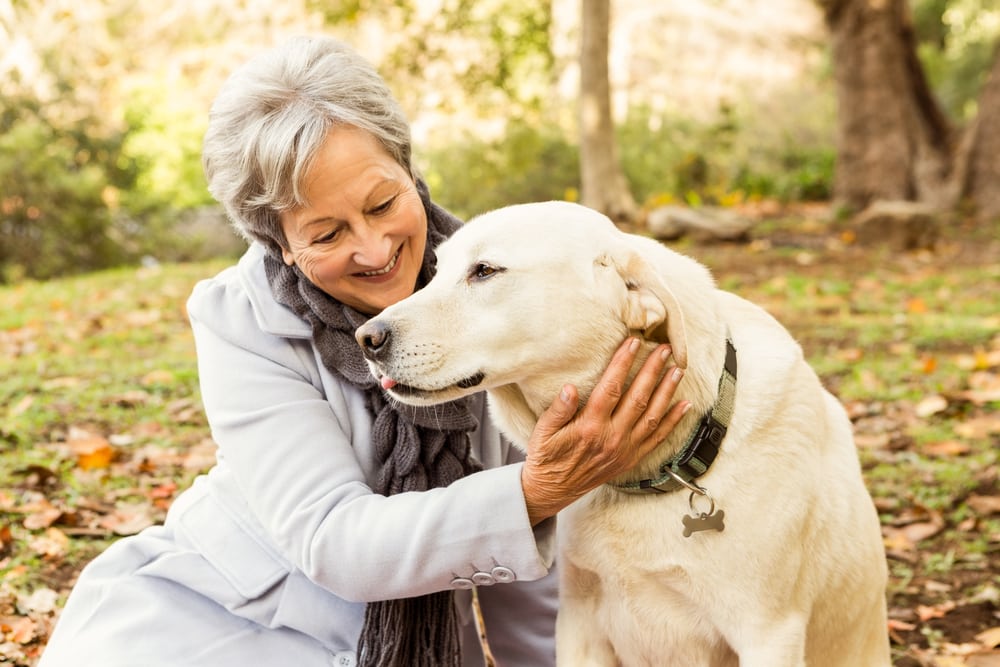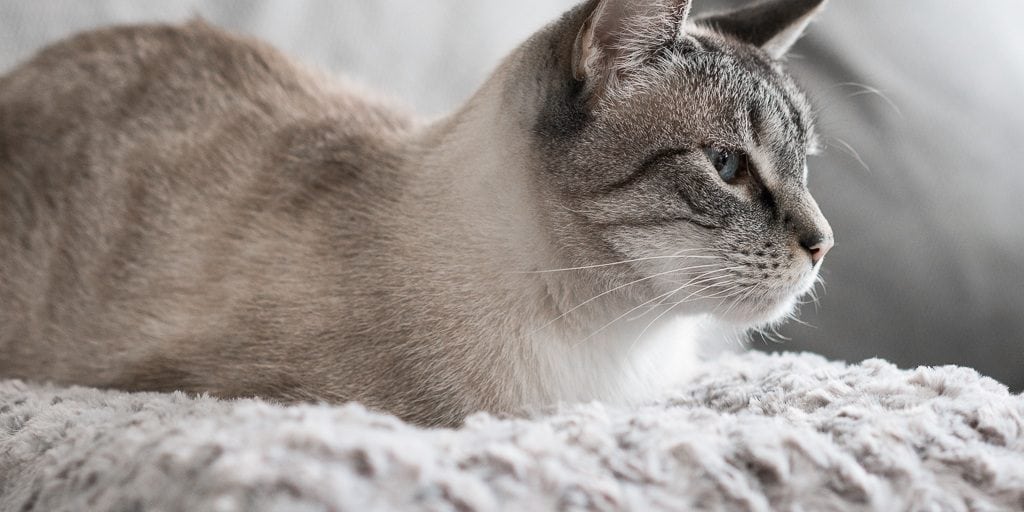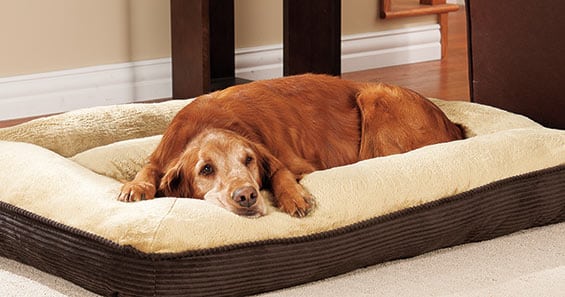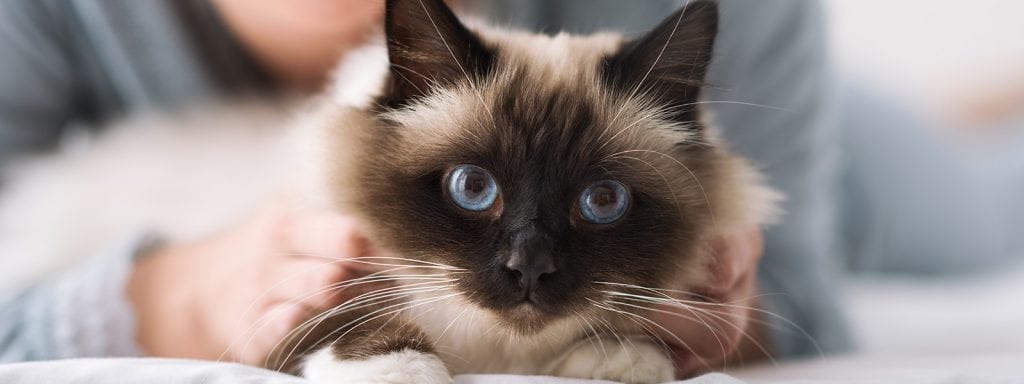
[vc_row][vc_column][vc_column_text]Jenny Trelawney from Perth, W.A. asks: I have two cats and a dog that are reaching their senior years. I have noticed their behaviours and moods have changed recently, and they have been to the vet for health checks. Is there anything I can do to help them be more comfortable and are there any common signs I need to look out for?
Keeping animals in our home is a wonderfully fulfilling experience, we get to spend everyday with our best friends and they show us what it means to truly love unconditionally. However, the not so great side of keeping animals is the shorter lifespan, knowing that we may outlive our animals. If there were a way to keep them with us forever, we would do whatever it takes. It can be uncomfortable to notice the signs of our animals aging, but now we can be there for them as they reach their senior years and need reassurance. Whether you have dogs, cats or smaller animals, there are several things you can do to help your loving companions feel more comfortable and make it easier to adapt to old age:
Keeping Warm
Biologically, dogs and cats have a body core temperature a few degrees higher than a human’s. This means they can tolerate higher levels of hot and cold temperatures better than us. However, as they get older their bodies need more energy to regulate their core body temperature so they tend to feel weather conditions more extreme, especially the cold. It takes a lot more energy to maintain body heat and you may find your dog or cat snuggling up to you or in their favourite bed more often. You can help your animals by putting on a dog coat or adding extra blankets to their bed. If you have an indoor/outdoor cat, creating a safe and warm haven for them outside can be done using a crate or even a kennel with lots of flannelette blankets to keep your cat warm. Giving your dog or cat a shelter to use to stay out of the wind chill will ensure they stay warm and also enjoy the outdoors. Alternatively, your outdoor animals may wish to be inside more often, so provide them with some soft but firm beds with blankets or towels to help them stay warm and make it easier on the joints when getting up off the bed.

Failing Eyesight/Hearing
Ageing catches up with all living beings. As we get older, our physical senses are not what they used to be. This can happen for our animals too. Their hearing or eyesight can fade as they age. For example, your dog or cat might not walk through the different hallways in your home as easily as they used to. They may not be able to see doorways to rooms as clearly, or hear you calling them throughout the house. This can make it very difficult for your animals to move around their home, so it is best to mark the hallways with different scents to help your animals smell the entry of each room without hurting themselves. Try using essential oils to mark your hallways and rooms. De-cluttering your home and keeping a night light on in the evening will also give your animals reassurance and make them feel safer in their now more vulnerable state. I recall a client of mine named Jack whom had a gorgeous Border collie named Bella. Bella was Jack’s shadow, and she used to spend time indoors and outdoors with Jack. Jack contacted me because Bella had started avoiding the back stairs leading into the house. He said she used to run up those stairs like a puppy for years and suddenly she was wary of them and she would bark to get his attention to bring her in from the front of the house. After conversing with Bella, I found that she was starting to feel her age and her eyesight was not as sharp as it used to be. She said she was nervous to climb those stairs, especially at night, as she couldn’t see them in the dark. They looked like deep water, which was very scary. She showed me herself trying to run up the stairs and nearly falling over as she avoided the gaps between the stairs. After relaying this to Jack, I explained that we might need to make some adjustments around the home to help Bella adapt. A few weeks later, Jack called me back to tell me Bella was doing much better. Jack had painted white strips along each step so that at night they would glow and Bella could see where she was walking as she came up the stairs. He also was building a ramp for her for when she would no longer be able to climb stairs. What a loving bond they have!
Creating Comfort
 As we get older, our joints are not as functional, it is more difficult for us to move around and get up and down. This is true also for our animals – as they get older they may feel discomfort in their joints, they may find it more difficult to get up out of their beds or up and down generally. You can alleviate this by providing more comfortable spots for sleeping such as taller beds for your bigger dogs, a softer and more stable bed for cats to curl up in. All four of my animals are in their senior years, and we have adjusted our home to ensure they have the most comfort and safety possible. Our cats have three comfortable beds to choose from on my desk. There is always a chair beside my desk for an easy transition up and down. This let’s them be near me and also be more comfortable for their joints too. Although there is always a debate on which bed is more comfortable! Akeira and Savannah get to rule the roost downstairs in the living area and private rooms. As Akeira has a condition with her back and hind legs, we have laid out carpet squares on our tiles everywhere possible so she doesn’t slip and hurt herself. We have done everything we can to safe-proof our home for our animals so they can feel safe and happy as they grow into their twilight years. After all, as long as they are happy, I am happy!
As we get older, our joints are not as functional, it is more difficult for us to move around and get up and down. This is true also for our animals – as they get older they may feel discomfort in their joints, they may find it more difficult to get up out of their beds or up and down generally. You can alleviate this by providing more comfortable spots for sleeping such as taller beds for your bigger dogs, a softer and more stable bed for cats to curl up in. All four of my animals are in their senior years, and we have adjusted our home to ensure they have the most comfort and safety possible. Our cats have three comfortable beds to choose from on my desk. There is always a chair beside my desk for an easy transition up and down. This let’s them be near me and also be more comfortable for their joints too. Although there is always a debate on which bed is more comfortable! Akeira and Savannah get to rule the roost downstairs in the living area and private rooms. As Akeira has a condition with her back and hind legs, we have laid out carpet squares on our tiles everywhere possible so she doesn’t slip and hurt herself. We have done everything we can to safe-proof our home for our animals so they can feel safe and happy as they grow into their twilight years. After all, as long as they are happy, I am happy!
“I Just Want to Be Near You”
With all the physical changes that can happen to your animals, this can make them feel uneasy, vulnerable and anxious. You may find your animals don’t like to be left alone, they are always looking for company and they can be restless at night. They may wish to always be touching you whether sitting on your lap or beside you. You can ease their anxiety by following all the solutions above and keeping a consistent routine. Also making yourself more available to them to allow them this closeness that they crave. Once they know what to expect everyday, they will begin to feel safe again and adapt to the changes happening to them.

Our animals have lived with us for years, put up with our good and bad, and also loved us even in our not so great moments. It takes very little effort to then take care of our animals with patience, love and kindness. After all, we are all heading for the same future, and we hope to have loved ones looking after us with the same love and care.[/vc_column_text][/vc_column][/vc_row]
